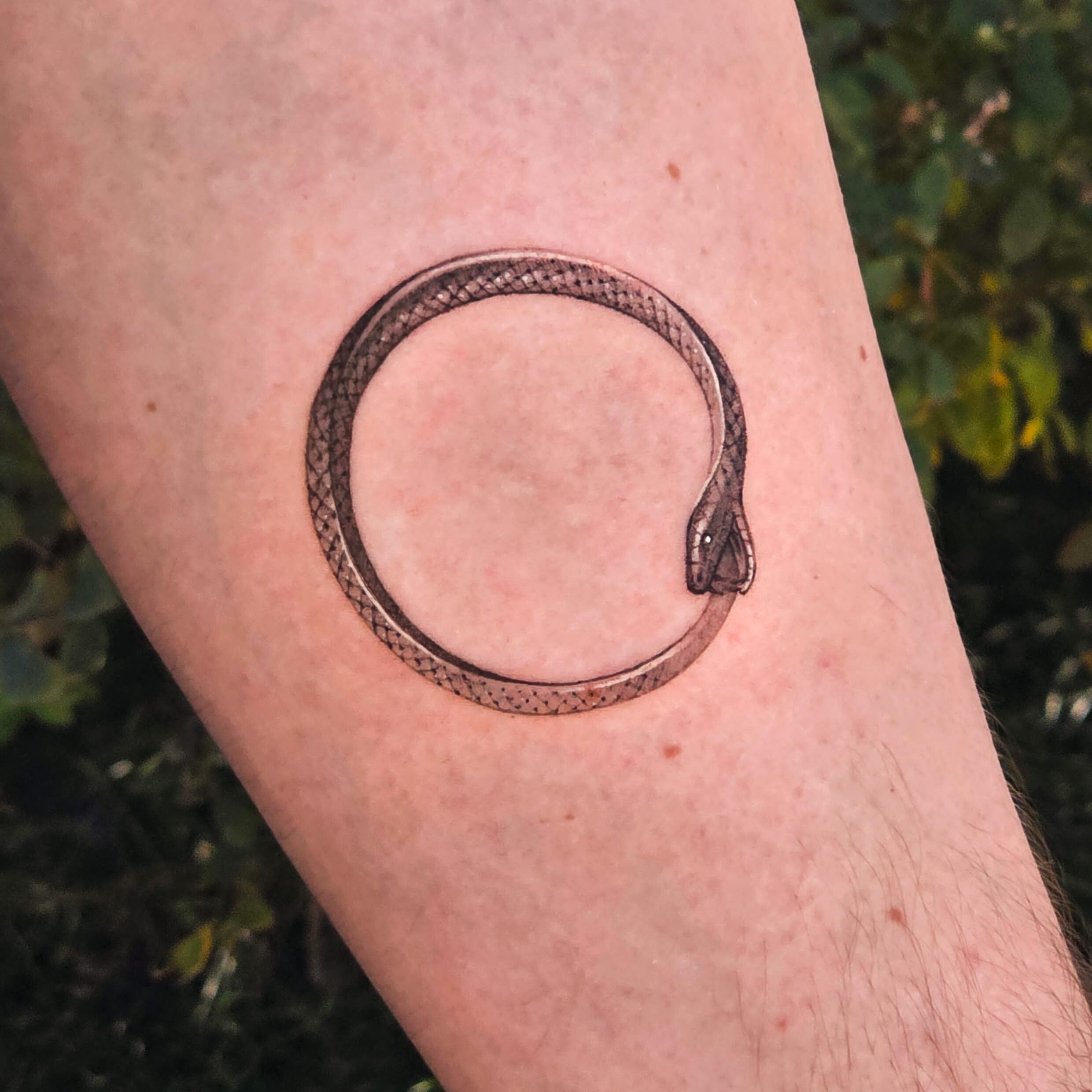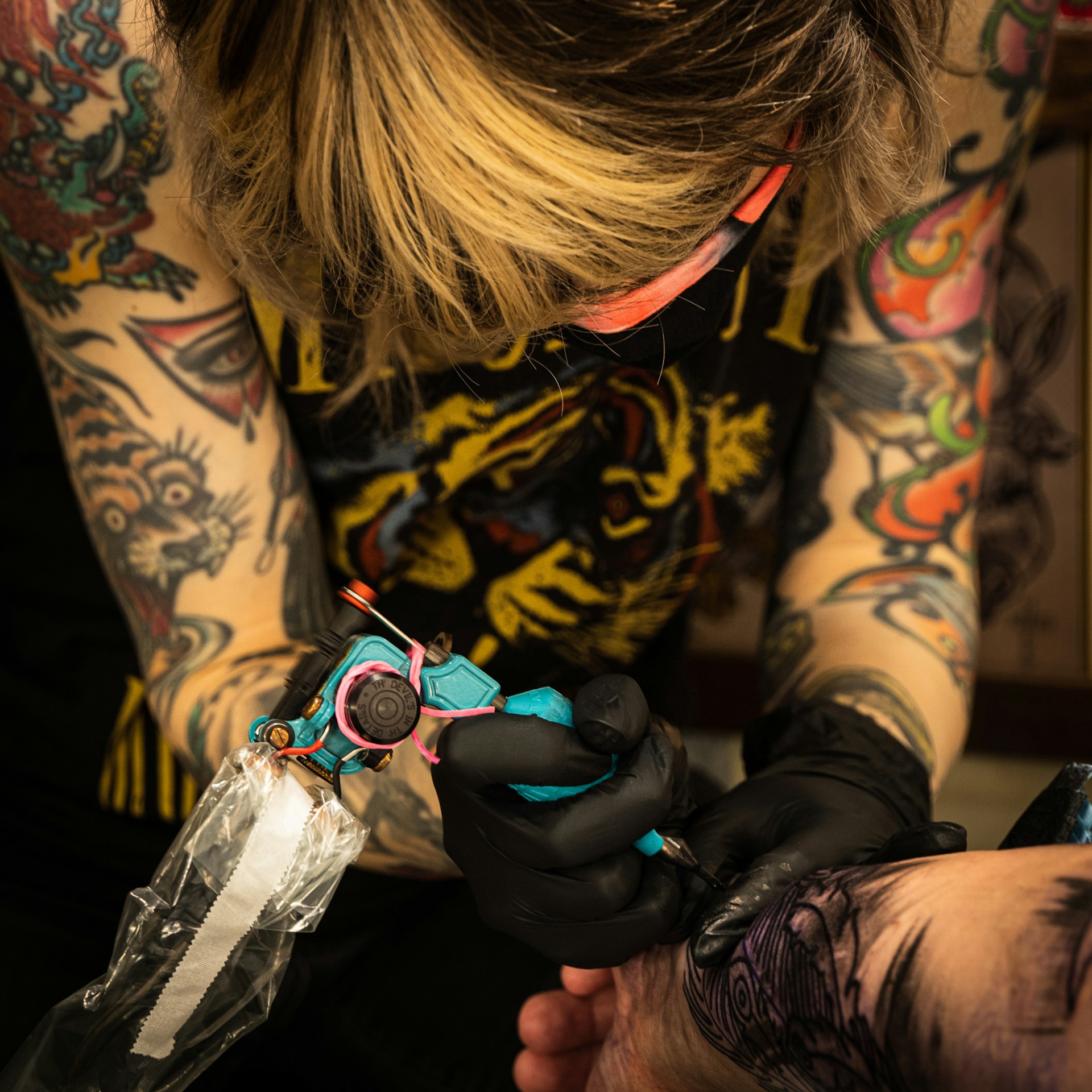I was having a chat with a bartender friend of mine who has a particularly lovely tattoo of the serenity prayer on her forearm. It’s my favourite prayer, so I asked her why she got it. “Honestly, anxiety,” she told me. I said I loved her answer. That’s precisely why I love that prayer: it’s all about finding peace in whatever circumstances, which is a helpful practice if you’re struggling with anxiety. So she went on to elaborate about how it’s there as a reminder to her. After that, we just got to talking about tattoos in general.
Interestingly, she told me how people who have tattoos don’t generally ask each other about them. At least, not at first, like someone who’s un-inked might do. This I understood: if you don’t have a tattoo, and especially if you don’t think about getting one, you might wonder what someone’s motivation was. It’s kinda scandalous, in a way, or outside of the norm for most people. The un-inked are blank canvases, uncommitted to any particular style or symbol, but if you have a tattoo, you’ll wear that symbol for the rest of your life. Or at least, that’s what makes me curious about it.
Yet I thought there was something strangely beautiful and powerful in the understanding between inked individuals that she described. To wear something like that—a life experience literally worn on your sleeve—and not to be interrogated about it sounded profoundly accepting to me. After all, we all have those experiences, but for most of us, those are tattoos with invisible ink, a collection of meaningful symbols that the naked eye can’t see. There’s something quite powerful about that, I think.
Imagine, for example, walking around the middle of a busy city with a biography of your most meaningful life experiences—good and bad—written on your shirt. If you’re anything like me, regardless of the fact that most people wouldn’t take the time to read it, I would want to swap shirts very fast. It would take an immense amount of confidence to wear that so casually.
It’s the same with tattoos, even if those tattoos don’t have a very deep meaning. I mean, my friend told me about another tattoo she got when she was 18 that she’s sort of indifferent to now. It was just one of those things, but she still has that reminder of the person she was, of that season of her life, of those experiences, and it cannot be denied. So often we’d like to deny our younger, more imperfect selves the courtesy of being remembered, but that’s not the precondition of a healthy self-image. Or at least, my therapist would raise an eyebrow at it.
Putting it all together, then, it’s a great thing to see people inked up, even if it’s just with things they just like. As a medium of self-expression and art, it’s been marginalized and underappreciated. People will say they’re unprofessional, regretful, or fad-ish—but so are we! Tattoos are only a reflection of the complexities of human life, its joys and sorrows, successes and mistakes. And not unlike the serenity prayer, tattoos are symbols of acceptance and witness. They are reminders that all of us, inked or not, are works in progress, walking biographies, and ever-changing tapestries of who we’ve been, who we are, and who we’re becoming.


Leave a Reply